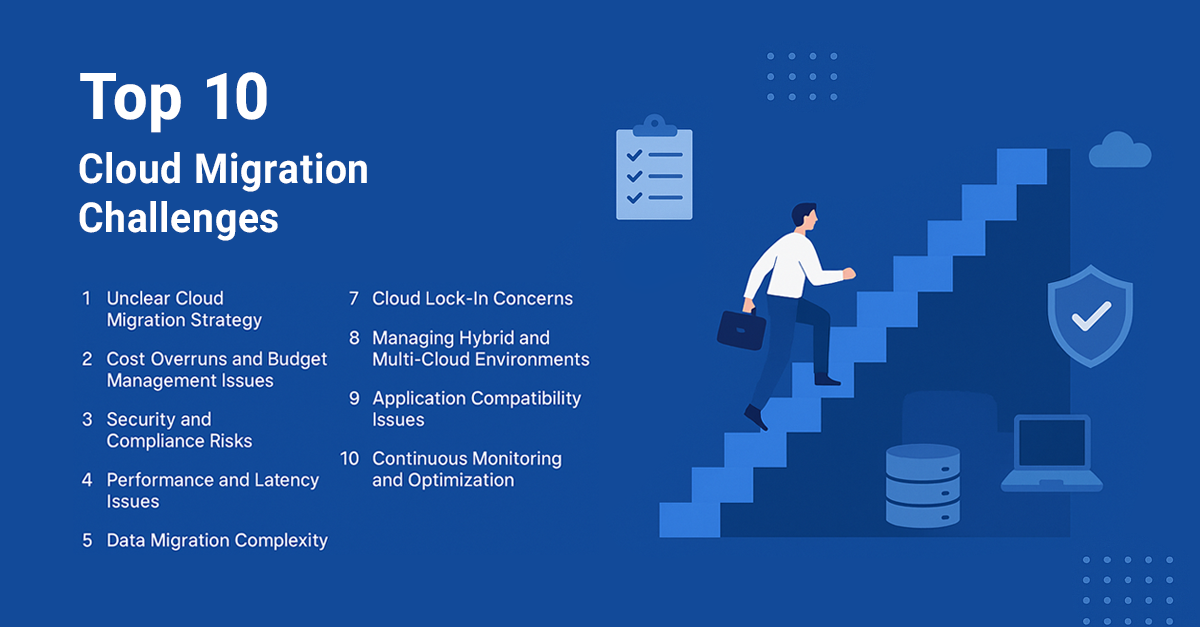This is part 1 of our 4-part series on the benefits of cloud migration with Azure.
Azure cloud migration is the transfer of both applications and workloads from existing bare metal or cloud infrastructure to Microsoft Azure, an enterprise-focused cloud platform.
Microsoft Azure supports a complete range of public, private, and hybrid cloud infrastructure, but it is not merely a platform for launching virtual servers and storage. Azure also offers many network, application hosting, container hosting and management, monitoring and logging, analytics, security, database, and machine learning services.
Benefits of Migrating to Azure
Azure is a comprehensive IT infrastructure hosting and management solution with platforms and services engineered to meet the diverse IT needs of businesses of all sizes. In this article, we will discuss the high-level benefits of migrating to the cloud in general and migrating to Microsoft Azure in particular.
Outsourced Infrastructure
Outsourced infrastructure refers to businesses that host applications in owned data centers that buy, maintain, power, cool, and manage their infrastructure. These centers must make capital investments in hardware and an ongoing investment in staff to manage and maintain it.
In the cloud, those responsibilities are outsourced to the vendor. In the case of Azure, that vendor is Microsoft, a business with decades of experience as a software and infrastructure partner of enterprise organizations.
On Azure, cloud users launch the infrastructure they need, scale it as required, and only pay for the resources they consume.
Reliability and Performance
Azure is built on a global network of data centers in diverse locations around the world. Because cloud infrastructure and networking are virtualized, it is much easier to duplicate data both within data centers and to geographically distant data centers for redundancy and reliability. It would be costly in the extreme for individual businesses to build infrastructure with the redundancy that Azure users gain when they migrate to the cloud.
Designed for Real-World IT Needs
Azure services are engineered to meet the real-world needs of modern businesses. Azure includes over 100 individual services, each designed to help businesses to build and manage fast and scalable infrastructure deployments. Azure services range from general compute and storage; to solutions built for mobile, the Internet of Things, and mixed reality; to infrastructure management and governance tools.
Security and Privacy
Security and privacy are key concerns when businesses migrate to a cloud platform. Can a business trust a third-party cloud provider to take security seriously?
In the case of Azure, the answer is yes. Azure’s underlying infrastructure conforms to global data security standards, providing a solid foundation on which Azure users can build secure and compliant deployments.
In addition to the platform’s foundational security, Azure includes many services that help businesses to protect data and networks, including Azure Active Directory, VPN Gateway, Key Vault, and Azure Information Protection.
Unlimited Scaling
Azure spans 54 regions around the world. Each region is made up of several data centers, and each data center houses a huge number of servers. Azure is designed to scale, and the resources dedicated to workloads can be grown or shrunk as required. Azure workloads can grow from a single VM or container to a global deployment in dozens of locations. Azure takes care of scaling so that Azure users can focus on building applications and services that generate value for their business.
Why Cloud Migration is Important
Cloud migration will help your business overcome the limitations of legacy infrastructure. By migrating to Azure, businesses can take advantage of a scalable, redundant, high-performance global infrastructure platform backed by Microsoft, a world leader in enterprise infrastructure services.
Now that you understand the benefits of migrating your application to the Azure cloud, you can start to build a larger rehosting strategy for your business. Stay tuned for part two, where we will examine some challenges and important considerations before you begin!


